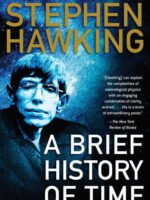Blood and Oil: Mohammed bin Salman’s Ruthless Quest for Global Power
₨2,965Blood and Oil by Bradley Hope and Justin Scheck explores the rise of Saudi Arabia’s Crown Prince Mohammed bin Salman. The book delves into his political maneuvers, controversial actions, and ambitions to reshape both Saudi Arabia and the world.
₨3,295Change We Can Believe In
₨1,365Change We Can Believe In by Barack Obama outlines his vision for America’s future. Covering topics like healthcare, education, and climate change, Obama offers practical solutions and a hopeful message for progress, inspiring readers to believe in collective action and change.
₨1,645Erdogan’s Empire
₨499Cagaptay’s book provides an in-depth analysis of President Recep Tayyip Erdogan’s rise to power, his consolidation of authority, and the impact on Turkey’s domestic and foreign policies. It examines how Erdogan’s leadership has reshaped the country’s identity and global positioning.
₨899How democracies die
₨1,320How Democracies Die by Steven Levitsky explores the gradual decline of democracies around the world, focusing on the ways authoritarian leaders exploit democratic institutions. Levitsky analyzes the signs of democratic erosion and offers insights into preserving democratic values and systems.
₨1,475How to Lose a Country The SEVEN Steps from Democracy to Dictatorship
₨1,495Ece Temelkuran examines how democracies slide into authoritarianism in How to Lose a Country. Drawing on global examples, she outlines seven warning signs of political decay, urging readers to resist apathy and protect democratic values through vigilance and action.
₨1,795Life 3.0: Being Human In the age Of artificial Intelligence
₨2,150This is the most important conversation of our time, and Tegmark s thought-provoking book will help you join it Stephen Hawking
THE INTERNATIONAL BESTSELLER. DAILY TELEGRAPH AND THE TIMES BOOKS OF THE YEAR
SELECTED AS ONE OF BARACK OBAMA S FAVOURITE BOOKS OF 2018₨2,545Money,Greed and God
₨999Jay W. Richards debunks myths about capitalism and explores its compatibility with Christian values. Money, Greed, and God advocates ethical capitalism as a force for good, offering a balanced perspective on faith, economics, and societal progress.
₨1,500My Feudal Lord
₨1,499My Feudal Lord by Tehmina Durrani is a gripping memoir exposing the abuse and oppression endured by the author in her marriage to a powerful Pakistani politician. It highlights the struggles of women in patriarchal and feudal societies.
₨1,699Offence: The Muslim Case (Manifestos for the 21st Century)
₨999Offence: The Muslim Case by Kamila Shamsie explores the complex intersection of religion, identity, and freedom of expression in the modern world. Shamsie examines the challenges Muslims face today and their place in contemporary global discourse.
₨1,299PAKISTAN AT THE CROSSROADS
₨2,500Pakistan at the Crossroads is a collection of essays analyzing Pakistan’s political, social, and economic challenges. Edited by Christophe Jaffrelot, it explores issues like governance, extremism, and geopolitics, offering insights into the country’s uncertain future and regional implications.
₨3,000Pakistan: Eye of the Storm
₨999Pakistan: Eye of the Storm by Owen Bennett Jones offers a detailed analysis of Pakistan’s political landscape, its struggles with internal and external conflicts, and the pivotal role it plays in global politics, particularly in relation to terrorism and regional security.
₨1,199Reconciliation: Islam, Democracy, and the West
₨2,900Benazir Bhutto’s Reconciliation is a compelling analysis of the relationship between Islam, democracy, and Western values. Combining historical insights and political perspectives, she advocates for bridging divides and fostering mutual understanding to achieve global peace and stability.
₨3,445Reconfiguring the China-Pakistan Economic Corridor
₨899Reconfiguring the China-Pakistan Economic Corridor by Jeremy Garlick analyzes the strategic, economic, and political implications of the CPEC. It explores how the project affects both nations’ regional influence and global economic power, offering a nuanced look at its potential outcomes.
₨1,299Ten Arguments for Deleting Your Social Media Accounts Right Now
₨1,750Jaron Lanier makes a compelling case against social media’s impact on society, highlighting issues like addiction, manipulation, and privacy violations. He offers ten thought-provoking reasons to reconsider our online presence and reclaim autonomy in an increasingly connected world.
₨1,945Terrorism:Theirs and Ours
₨2,099Terrorism: Theirs and Ours by Eqbal Ahmad critically examines the origins and politics of terrorism. It challenges mainstream narratives, exploring the role of global powers, colonial history, and socio-political contexts in perpetuating violence and misunderstanding about terrorism.
₨2,500The Great Delusion
₨699Mearsheimer’s work critiques American foreign policy and its pursuit of liberal hegemony, arguing that it has destabilized global order and led to conflicts. He explores alternative approaches that prioritize realism, power balance, and the limits of U.S. influence.
₨1,099The Return of Taliban
₨849The Return of the Taliban by Hassan Abbas offers a comprehensive overview of the Taliban’s resurgence in Afghanistan. It explores the factors behind their comeback, the international response, and the implications for regional and global security.
₨1,299The Revenge of Geography
₨499The Revenge of Geography by Robert D. Kaplan examines how geography shapes global politics. Kaplan argues that nations’ geographical features and locations heavily influence their political decisions, strategies, and conflicts, offering a unique lens on world history and power dynamics.
₨699Why Nations Fail: The Origins Of Power, Prosperity, And Poverty
₨2,250Brilliant and engagingly written, Why Nations Fail answers the question that has stumped the experts for centuries: Why are some nations rich and others poor, divided by wealth and poverty, health and sickness, food and famine?
Is it culture, the weather, geography? Perhaps ignorance of what the right policies are?
Simply, no. None of these factors is either definitive or destiny. Otherwise, how to explain why Botswana has become one of the fastest growing countries in the world, while other African nations, such as Zimbabwe, the Congo, and Sierra Leone, are mired in poverty and violence?
₨2,545
























